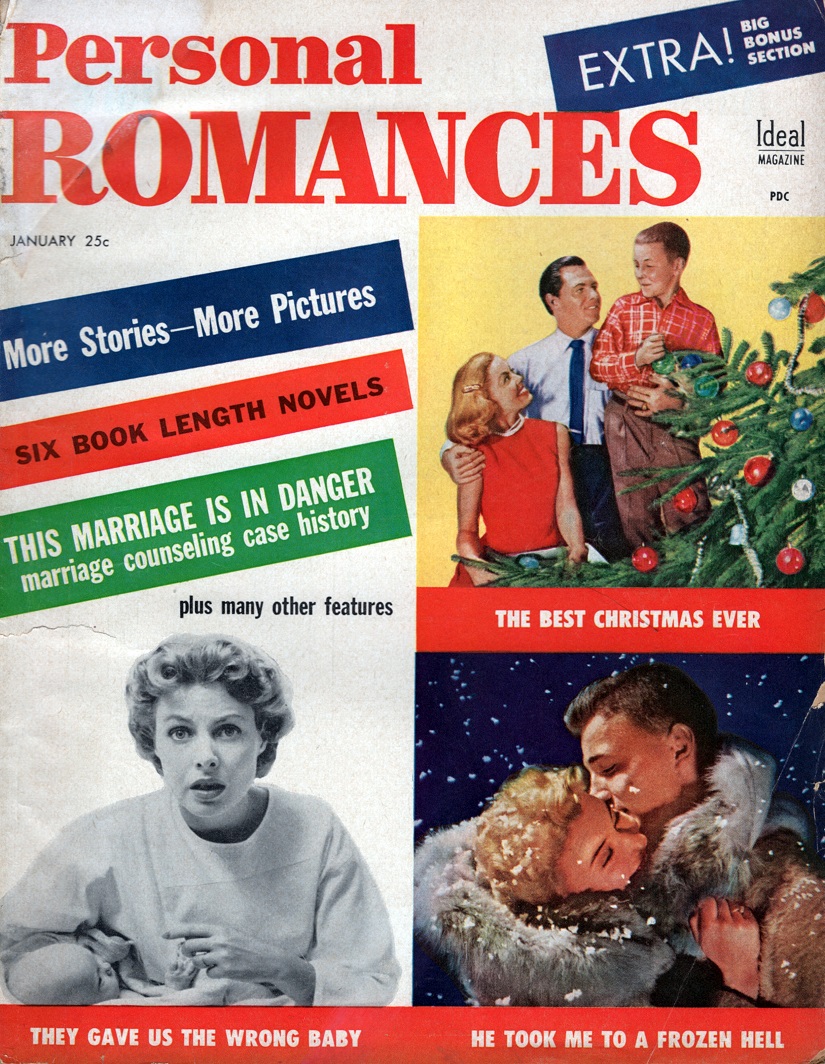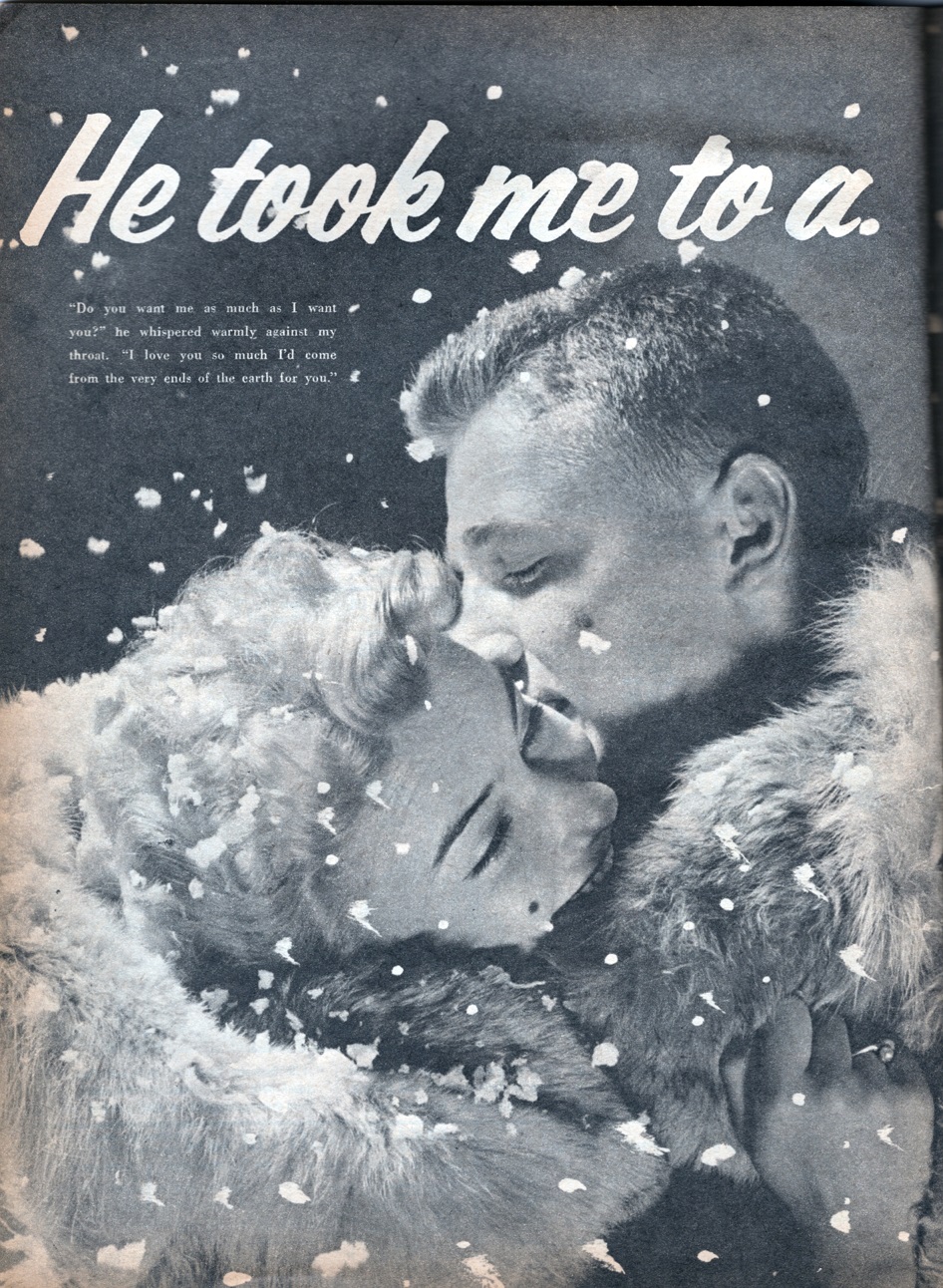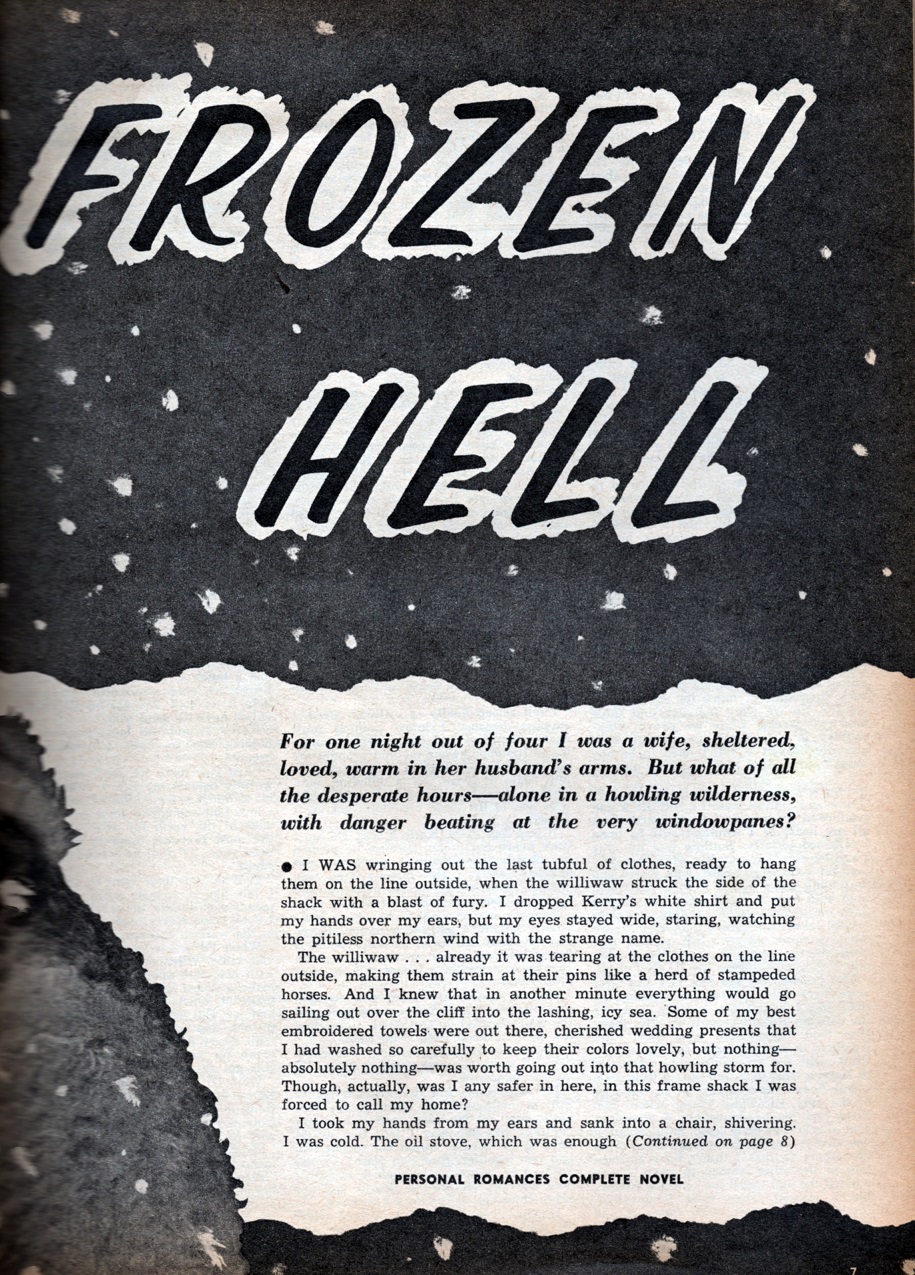
Personal Romances, and other “confession” magazines, were particularly popular in the 1940s and ’50s. They featured anonymously-authored fiction, non-fiction, and fiction posing as non-fiction. Usually the stories dealt with taboo subjects. Like going to a priest to confess sins, the idea of a “confession” story is to write about dark secrets that could never be shared openly. Common topics include sex out of wedlock, abortion, sexual affairs, kinky sexual desire, swinging, divorce…anything controversial, but especially anything to do with sex.
Long dismissed as trash, it’s easier to admire these publications now. In a highly suppressed world where women had few outlets to express their terror, rage and frustration with societal injustices, the confession mag became that secret place for women readers and writers to bare all. Honestly, I’m surprised they haven’t made a comeback yet.
He Took Me To A Frozen Hell, a “novel” from this January, 1955, issue is an anti-Christmas Christmas story about a young bride who’s miserable after her husband moved her from sunny Florida to treacherous Alaska. While he is away from home as the pilot for a puddle jumper, she faces the williwaw winds and subzero temperatures alone. Alone except for generous bottles of liquor…

Like the author, the narrator is anonymous. We don’t know her name, but we know she married very young. When the story opens she’s still a month away from her eighteenth birthday.
She describes the harsh reality of her situation, lamenting that brutal wilderness life is nothing like the snowy Christmas card she had originally imagined. Her food is canned rubbish and her husband is once again far away. Terrified by the shrieking wind, she drinks down a bottle of liquor just to fall asleep.
When her husband returns, he beds her into submission. Their passion reminds her why she was willing to make sacrifices to be with him. Still, she begs him to consider a different career, one where they don’t have to be in this remote, inhospitable country. But he has an adventurer’s heart and supporting this land makes him feel needed.
It’s important to remember that in 1955, Alaska wasn’t yet an official US state.

Before he leaves again, the husband notices his liquor stash is nearly empty. Afraid his wife might drunkenly set their shack on fire or stumble off cliffs into the open sea, he has his boss check on her periodically. The wife interprets this as “spying” and soon finds an alternative source for alcohol, a local tavern operated by her friendly neighbor.
Soon the wife is once again guzzling unsafe amounts of alcohol and hiding from her husband’s boss so he can’t tattle on her. But one day she hides too well, and the boss is unable to inform her that her husband was in a plane crash and now she can’t fly her to him because of a blizzard. During these agonizing days of uncertainty, the wife regrets her selfish attitude, gives up alcohol, and learns that Alaska needs a woman’s hand too. She no longer sees her house as a dilapidated shack, but a “palace” for her, her husband, and the important work of domesticating untamed American wilderness.
The ending is cheesy, certainly, but ultimately satisfies expectations within the genre of Christmas fiction. It also satisfies within the genre of adventure fiction, however, and the itch for American exceptionalism. In 1955, there was mystique around Alaska, its horrors and possibilities. Jack London famously capitalized on this intrigue, though several decades earlier. Still, the prose of this anonymous author is top-notch enough that I don’t see why her fiction should not stand next to authors like London.
The only fault with this story, by 1955 standards, is that it is told from a female perspective (considered insignificant by the patriarchy) and was published in a confession magazine. With the aid of hindsight, I hope more critics will recognize the significance of such magazines and how they supported feminism in their own way. We may never know the identity of the anonymous authors, but at least we can appreciate the work they left behind.
Don’t miss our latest content! SpookyBooky is on social media:
